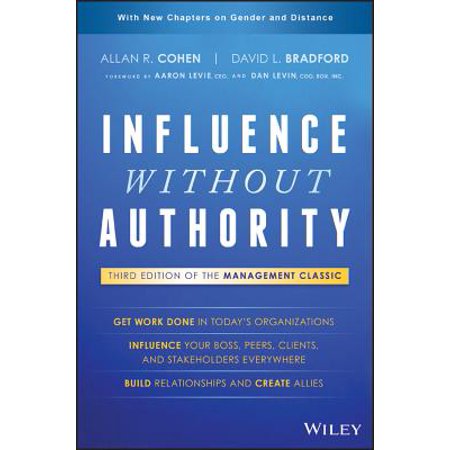Introduction
Table of Contents
With a recent trend of the organizational structure getting more and more linear, coupled with the fact that in today’s times, Gen X Gen Y and Gen Z are all required to work together, it is getting imperative that everyone, irrespective of position and status within the organization, develops the ability to influence others. Influencing someone using authority may still be simpler (it’s not always preferred though), but when it comes to influencing without authority, many face a challenge. The book, Influence Without Authority by Allan R. Cohen and David L. Bradford explores the ‘Exchange Model’ that can be used to influence someone even without the use of authority – a skill much needed in today’s times.
Below are some of the key points that I have picked up from this book –
Assume all are potential allies
For me, this is one of the biggest take-away from the book. Over a period of years, our education system, in an attempt to reward the person with the maximum scores, has turned us inadvertently to competitive beings. We are moving away from being collaborative (which we are biologically ingrained to be) to competitive (which is an acquired behaviour) and all our conversations are driven from an ‘enemy’ mind-set. As difficult as it may appear, just by assuming that people around us are allies, we change our mindset and thus drive conversations to be more positive.
Gaining clarity on your objectives
Often times, we get so caught up in dealing with relationships and driving conversations the way we want to, that the objective gets derailed. It is important to know exactly what the end objective is and be flexible towards achieving it.
The currencies of exchange
The book emphasises on exchange and reciprocity, which simply put is making trades with another person basis some exchange. There are number of potential currencies that one can use to trade. Currency, here, is a metaphor for something that is valued. In case one is required to assert influence over someone, one most be aware of the other person’s currency (or what the other person values) and should be able to influence by exchanging their currency.
How Does Currency Work?
Let’s start at the beginning – What does the term currency really mean? When it comes to human interactions, this can mean a host of things to different people.Thus, to truly figure out what matters to an individual, it is important for us to know the person well. This can be easily achieved with just a little mindfulness and situational awareness.
To further simplify our understanding, the book divides the said currencies into five categories:
- Task
- Relationship
- Inspiration
- Position
- Personal
When further broken down into tangible concepts, these currencies translate into he following –
Task
These currencies directly relate to the satisfaction that someone achieves upon the completion of a particular task. Examples of task related currency can be adding new resources or challenges that stretch an individual to step up an accomplish something more, or provide assistance or organizational support that makes someone feel more valued.
Relationship
These are related to strengthening bonds and relationships and are valued highly by people who are driven by strong relationships. The feeling of acceptance, inclusion and personal support are all examples of relationship related currency.
Inspiration
This is a currency for those people who are driven by inspiration and need meaning in their work. People with such currencies align well when shown a larger vision, excellence and morals or ethics in the work they do. People overcome inconvenience when they see how their contribution will mean a larger significance.
Position
These currencies are affirmative for a person’s position in an organization and can aid in the person’s career advancement. These currencies are recognition, reputation, visibility to higher ups and importance. Many people who operate from this currency will gladly extend themselves for an exchange that involves this currency.
Personal
These currencies vary from distinctive attributes such as gratitude or ownership or self-concept. These need to be understood by taking keen interest in the individual and being present in the moment, at all times.
Conclusion
While, it is interesting to learn that everyone operates from currencies but investing in a relationship only when it is needed can be detrimental. It is frugal to establish strong bonds as one may need an exchange at a later point of time, if not immediately.
This book is highly recommended for someone who wishes to get things done using collaboration, especially when the people involved in the exchange are not someone who you have authority over. Many people confuse Influence with manipulation. These two are very different things. While influence is encouraging someone else to react or believe or want the same things as you; manipulation is exerting negative influence and using it to your advantage. We all influence in some way or the other. Even a 5-year old influences his parents to get him a chocolate by pleading or throwing tantrums. This book helps one focus on interests and work together to get to creative solutions.




















